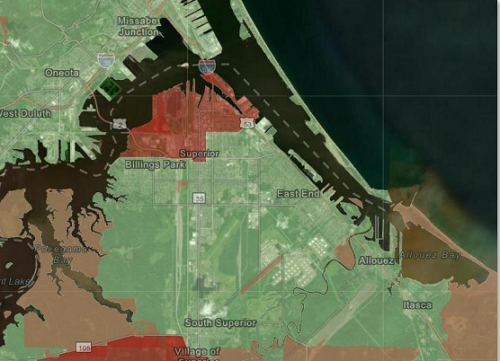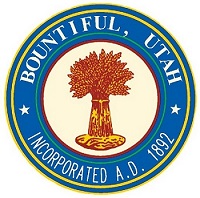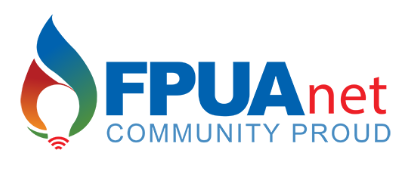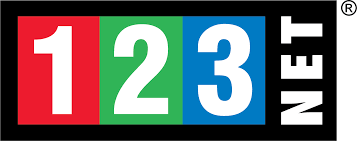
Fast, affordable Internet access for all.


May 2022 witnessed something remarkable: the birth of a new nonprofit advocacy organization whose sole purpose was to speak up for the hundreds of communities that have built municipal broadband networks, and the thousands more that want to but don't know where to start. Now, the American Association for Public Broadband has named as its Executive Director as Gigi Sohn, former Biden nominee to the Federal Communications Commission. And she's ready to get to work.
Gigi joins Christopher on the podcast this week to talk about standing up support systems to promote and defend community-driven models to double the number of municipal systems in the next five years - including providing resources and countering dark-money astroturf campaigns - while also making sure the Internet stays as open and equitable as possible, and not squandering the promise of BEAD.
This show is 46 minutes long and can be played on this page or via Apple Podcasts or the tool of your choice using this feed.
Transcript below.
We want your feedback and suggestions for the show-please e-mail us or leave a comment below.
Listen to other episodes here or view all episodes in our index. See other podcasts from the Institute for Local Self-Reliance here.
Thanks to Arne Huseby for the music. The song is Warm Duck Shuffle and is licensed under a Creative Commons Attribution (3.0) license.
Portland activists are renewing their calls to prioritize the construction of a municipally owned broadband network in the Oregon city of 635,000. With an historic infusion of federal subsidies and a looming shakeup of city politics, advocates for community-owned broadband say the time is right to finally revolutionize city telecom infrastructure with an eye on affordability.
“Ten years ago was a perfect time to embrace community broadband and nothing has changed,” Russell Senior, President of Personal Telco, a nonprofit wireless network, and Municipal Broadband PDX, a nonprofit advocating for publicly-owned fiber networks in Multnomah County, Oregon told ILSR.
“ISPs continue to exercise monopoly power and have their boot on the neck of subscribers,” he said. “The most practical and effective way to get out from under that boot, in light of persistent federal complicity, is local public ownership of the infrastructure that gives them that power.”

Portland has historically been at the very center of the debate over monopoly power and competitive broadband access, and city officials have been contemplating a publicly-owned broadband network for more than 20 years. It’s a concept other Oregon cities, like nearby Hillsboro, adopted years earlier.
Superior, Wisconsin officials have given the green light to the first pilot area for Superior’s new city-owned fiber network. Dubbed Connect Superior, the open access fiber network aims to deliver affordable gigabit access to every resident, community anchor institution and business in the city of nearly 27,000.
On July 5, the Superior City Council voted 8-1 to approve deployment in the project’s first pilot area: a swath of around 821 homes and businesses lodged between Tower Avenue, Belknap Street, and North 21st streets. The vote lets the city now begin issuing RFPs for network construction and negotiate with potential network tenants.
In 2020 the city passed a resolution declaring fiber essential infrastructure. In 2021, the city council voted overwhelmingly to move forward on a deployment master plan developed for the city by EntryPoint Networks. The initial $2.26 million cost of the pilot will be paid for with the help of $5 million from the city’s $17 million allocation from the American Rescue Plan Act funding.

A citywide deployment, should the city pursue it, is expected to cost somewhere around $31 million. The city remains hopeful that much of the cost can be offset by what it hopes will be a 40 percent take rate among local residents and businesses.
Bountiful, Utah officials and community broadband advocates are breathing a sigh of relief as the Utah Taxpayers Association’s “Gather Utah” petition to stop the city from building an open-access network in partnership with UTOPIA Fiber fell short.

This past Friday was the deadline for “Gather Utah” to collect enough signatures for a petition that would have forced a citywide vote on the $48 million in revenue bonds authorized in May by city councilors to fund network construction.
In a press statement, City Manager Gary Hill said: “hired signature gatherers ultimately failed to collect enough signatures from registered voters to advance the opposition campaign.”
Bountiful Mayor Kendalyn Harris added:
“Bountiful is a unique city. Our residents started this process. They organized a ‘Fiber for Bountiful’ campaign that led to a thorough consideration of many options. We now look forward to offering a vital service to residents and businesses in an increasingly digital world.”
Now, after three years of study and more than two dozen public meetings, Bountiful Fiber will begin construction next month. As we previously reported, the city-owned fiber optic network will provide gigabit speeds to residents and businesses who subscribe for service.
Earlier this month American Association for Public Broadband (AAPB) President Gigi Sohn wrote an op-ed in the Salt Lake Tribune about how the “Gather Utah” campaign (backed by the cable industry) tried to derail the city’s project. After news of the petition failure, Sohn said:
Fort Piece, Florida officials say the city continues to make steady progress with its plan to expand access to affordable fiber to all 45,000 Fort Pierce residents with the help of the city-owned utility. The network, inspired by similar utility-backed efforts in cities like Chattanooga, promises to deliver multi-gigabit speeds at prices notably lower than regional monopolies.
Since 1972, the Fort Pierce Utilities Authority (FPUA) has provided gas, electric, water, and natural gas services to city residents. Since the early 2000s, FPUA has deployed 110 miles of optical fiber via its FPUAnet Communications division. In 2018, the city, frustrated by limited broadband competition, decided to expand network access to the public.
“Our network is moving along well,” Jason Mittler, FPUAnet manager told ILSR. “We have passed about 1000 parcels and will pass another 1000 next year.”
The full deployment is expected to take somewhere between five to ten years to finish, and is funded by bonds held by FPUAnet. The network is utilizing GPON fiber technology capable of 2.5 Gigabits per second (Gbps) downstream and 1.25 Gbps upstream in some areas, and XGS-PON-based fiber capable of symmetrical 10 Gbps speeds in others.

Mittler notes that the finished product should result in both last-mile speeds and pricing that regional telecom monopolies, predominantly AT&T and Comcast, are both unable and unwilling to offer. Especially on the upstream side of the equation.
Mittler says the plan remains to provide all locals with access to symmetrical 100 Mbps for $49 a month; symmetrical 200 Mbps for $69 a month; symmetrical 200 Mbps service for $69 a month, symmetrical 500 Mbps for $79 per month; and symmetrical gigabit for $99 a month.
The city of Dublin, Ohio has struck a public private partnership with altafiber (formerly known as Cincinnati Bell) to build a new citywide fiber network city leaders hope will finally deliver the kind of affordable, next-generation broadband access Dublin’s 50,000 residents have long been clamoring for.
In 2022 the city issued a request for proposal (RFP) looking for a partner on a citywide network build. At a June 26 meeting, the Dublin city council voted unanimously to select altafiber from a roster of seven potential applicants.
According to the arrangement, construction of the city network is expected to begin in Spring of 2024, with every premise in Dublin passed by a 10 gigabit per second (Gbps) capable network within three years. A select number of undetermined customers are expected to be brought online sometime in the latter part of next year, officials tell ILSR.
A city press release notes that altafiber will invest $35 million in the fiber network, as well as potentially providing the infrastructure necessary to help the city support either public Wi-Fi initiatives or a City Innovation Center. The city says it will pay about $6 million to bury the necessary fiber infrastructure citywide.
Ponca City, Oklahoma officials say they’ve completed construction of a citywide fiber broadband network both ahead of schedule and under budget.
The finished network is now providing affordable, uncapped, multi-gigabit fiber access to every local resident in the community or 24,100 residents of Northern Oklahoma city.
In 1996, Ponca City began developing a 140 mile central fiber network to help connect schools, city offices, and other key anchor institutions. The city’s infrastructure was expanded in 2005 to provide access to local businesses, and again in 2007 when the city began providing local access to a citywide Wi-Fi system at no cost to local residents.
Frustrated with substandard service from regional telecom monopolies, in 2014 city officials began seriously talking about building a citywide fiber network. By 2015, officials had begun gauging local interest and found that 85 percent of residents were frustrated with existing service, and overwhelmingly supported the city’s plan to build something better.

That same year officials began network planning and studying other projects in earnest.
“Collectively we studied more than 2 dozen successful projects and 13 failed ones to learn from those experiences,” Dave Williams, Director of Technology Services for Ponca City said at the time. “We visited other cities that have implemented broadband solutions, read countless research articles detailing the challenges and rewards of such projects, and systematically took every aspect of this project apart and looked at it to develop a plan addressing all the potential problem areas the best we possibly could.”
‘Business is Booming’
Eight years later and those efforts are now paying off for Ponca City residents.
Officials in the South Texas town of Harlingen say they’ve put their plan to deploy a municipal broadband network on hold after projected costs ballooned well beyond original estimates.
Originally, Harlingen officials had hoped to construct a $4 million fiber network to shore up broadband access to the city’s unserved and under-served populace, using a portion of the city’s $22 million share of the American Rescue Plan Act (ARPA).
But a $100,000 study conducted by Houston-based consultants Cobb Fendley and Associates suggested a more realistic price tag would be closer to $10 million, forcing city officials to reconsider their plan.
"We were hoping to get it rolling but we ran into a few hurdles along the way," City Commissioner Ford Kinsley recently told GovTech. "We're looking for some sources other than what we originally thought."
A 2019 census survey found that nearly 35 percent of Harlingen’s households (7,887 of 22,901) lacked any broadband access whatsoever, positioning the city as second worst in the state behind Pharr, Texas, which recently built a municipal fiber network to bring affordable connectivity to its city residents. Harlingen school district officials also say they found that 900 students' homes lacked Internet access as of 2020, hampering city education standards.
The majority of the rest of the city’s residents are served by one or two providers, resulting in spotty access, high prices, and sluggish speeds. As with so many U.S. markets, the Covid home education and telecommuting boom drove home the need for the kind of affordable, uniform broadband access regional monopolies long failed to deliver.
In the Salt Lake City suburb some call “the garden spot of Utah,” Bountiful, Utah officials have settled on a plan to bring Bountiful Fiber and affordable connectivity to its residents and businesses.
By unanimous vote of the city council, the issuance of $48 million in bonds was authorized on May 26 to fund construction of what will be a city-owned open access fiber network.
The city will own the network and lease it out to multiple private Internet service providers (ISPs) – a model that city manager Gary Hill described as a way to create “a competitive marketplace for Internet service providers."
In a letter to city councilors before the bond issuance was authorized, Hill wrote: "Resident requests and sentiment ... demonstrate a need for city involvement to provide adequate, competitive, reliable broadband services.”
After issuing an RFP in November of last year, the city contracted with the nation’s largest open access network – UTOPIA Fiber – to build, operate, and maintain the network. It is expected that construction will take about 2 to 3 years to complete, though some subscribers will likely be lit up for service within 18 months of the start of construction, scheduled to begin this month.
Dark Money Looks to Torpedo Project
A dark money campaign spearheaded by the Utah Taxpayers Association (UTA), however, is threatening to derail the project. The group, whose annual conference is sponsored by Comcast and CenturyLink/Lumen, is backing a “Gather Utah” initiative to obtain signatures for a petition that would stop the city from building the network.
Allegan County, Michigan will soon receive a $30 million state grant to finalize the deployment of a new open access, carrier-neutral fiber network. The end result will bring overdue competition – and affordable multi-gigabit fiber access – to long neglected communities by 2025.
The $30 million award is part of Michigan’s $238 million Realizing Opportunity with Broadband Infrastructure Networks (ROBIN) grant program, made possible by 2021’s American Rescue Plan Act (ARPA) and the resulting Capital Projects Fund.
123NET was chosen by Allegan County in late 2021 to help spearhead the Allegan County Broadband Project. The public-private partnership will bring access to more than 10,000 Allegan County residents either underserved or completely unserved by regional telecom giants, spread out across 1,000 square miles.
123NET and Allegan County had already committed to contributing $17.5 million for the construction of the network, with the county’s share coming from earlier ARPA awards.

"We are pleased to be selected as a recipient of the Michigan ROBIN Grant Funding. This recognition validates the hard work and dedication that both we and Allegan County have put into this Project,” Dan Irvin, CEO of 123NET said of the award. “We look forward to partnering with additional communities throughout Michigan in a combined effort to make this state the best connected on the planet."